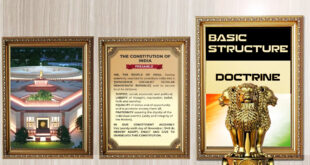The issue today is whether a dishonest system can be managed honestly
Allegations of interference in major institutions have been the big news of late. The ongoing fracas in the Central Bureau of Investigation (CBI) has got out of hand, with the two top officials in the chain of command accusing each other of corruption. The recent pronouncements in the Supreme Court do not promise an early resolution. The fight against widespread graft in the country has been set back. The Deputy Governor of Reserve Bank of India (RBI) has highlighted the serious consequences if there is an erosion of its autonomy. The intervention by the Supreme Court in the CBI issue places a question mark on the independence of the Central Vigilance Commission (CVC) and the functioning of the government as a whole in making key apointments in the CBI. The CBI controversy has also left an imprint on the Intelligence Bureau and the Research and Analysis Wing. The list of institutions in decline is long. The ongoing #MeToo movement has exposed the sordid goings-on in large swathes of the media and the entertainment industry. Earlier too, the Election Commission was under a cloud over the announcement of election dates, action taken against some Delhi legislators and the functioning of electronic voting machines. The functioning of the judiciary itself has been a cause for concern. Then there is the attempt to introduce Civil Service Rules in Central universities, an attempt to erode the autonomy of academics. The crisis in the banking system and the huge non-performing assets that overrun their balance sheets impact the viability of the financial system. The rule of law is being subverted and illegality being committed on a large scale. Growth of the black economy is a measure of illegality. It has gone up from 4-5% of GDP in 1955-56 to the present level of 62%. It has become ‘systematic and systemic’ and eroded institutional functioning all across the board. This has damaged institutions.
Institutions provide the framework for individuals and systems to function. Their breakdown leads to a breakdown of societal functioning — democracy is weakened, the sense of justice is eroded and the Opposition is sought to be suppressed. The tainted not only survive but also get promoted and damage institutions.
If institutions are strong, they are respected and it becomes difficult to manipulate them. It enables the honest to survive. In strong institutions, individual corruption is an aberration but when they weaken, it becomes generalised. It leads to individualisation, illegality becomes acceptable and the collective interest suffers. Even an ‘honest’ Prime Minister tolerated dishonesty under him. The dilemma is, can a dishonest system be managed honestly?
Arun Kumar is Malcolm Adiseshiah Chair Professor, Institute of Social Sciences, and the author of ‘Understanding Black Economy and Black Money: An Enquiry into Causes, Consequences and Remedies’
Source : https://www.thehindu.com/todays-paper/tp-opinion/amid-institutional-decline/article25552835.ece
Check Also
Joint Parliamentary Committees (JPCs): Scrutinizing the Executive
Introduction In a parliamentary democracy, ensuring accountability of the executive is paramount. Joint Parliamentary Committees …
 Chinmaya IAS Academy – Current Affairs Chinmaya IAS Academy – Current Affairs
Chinmaya IAS Academy – Current Affairs Chinmaya IAS Academy – Current Affairs



